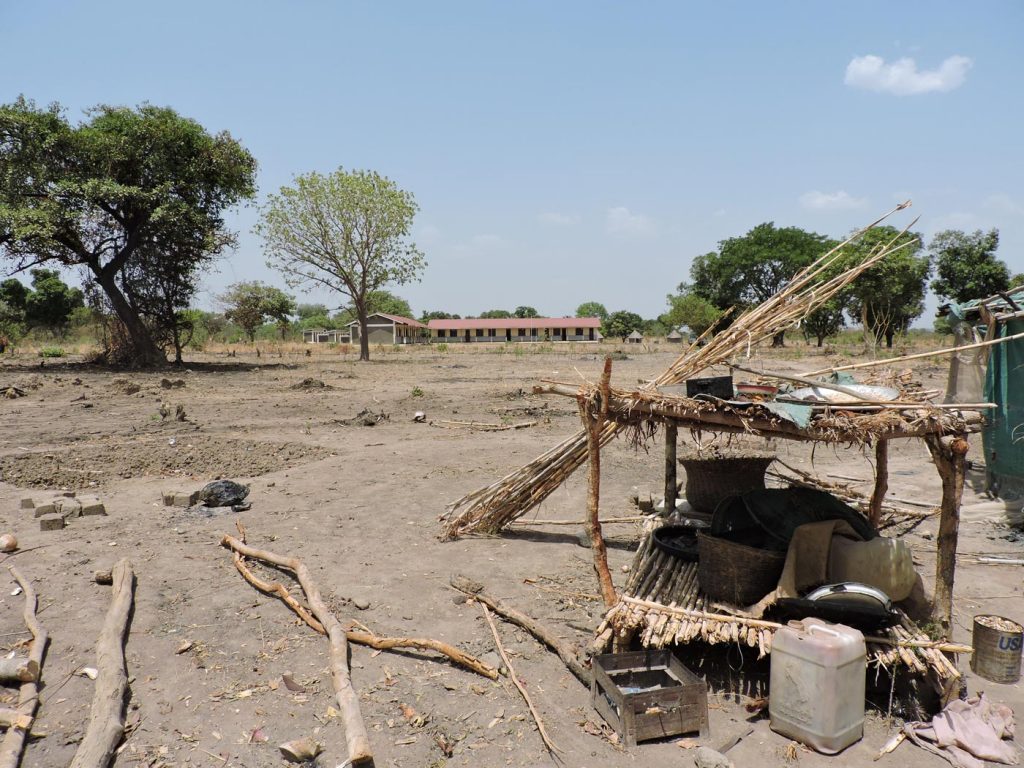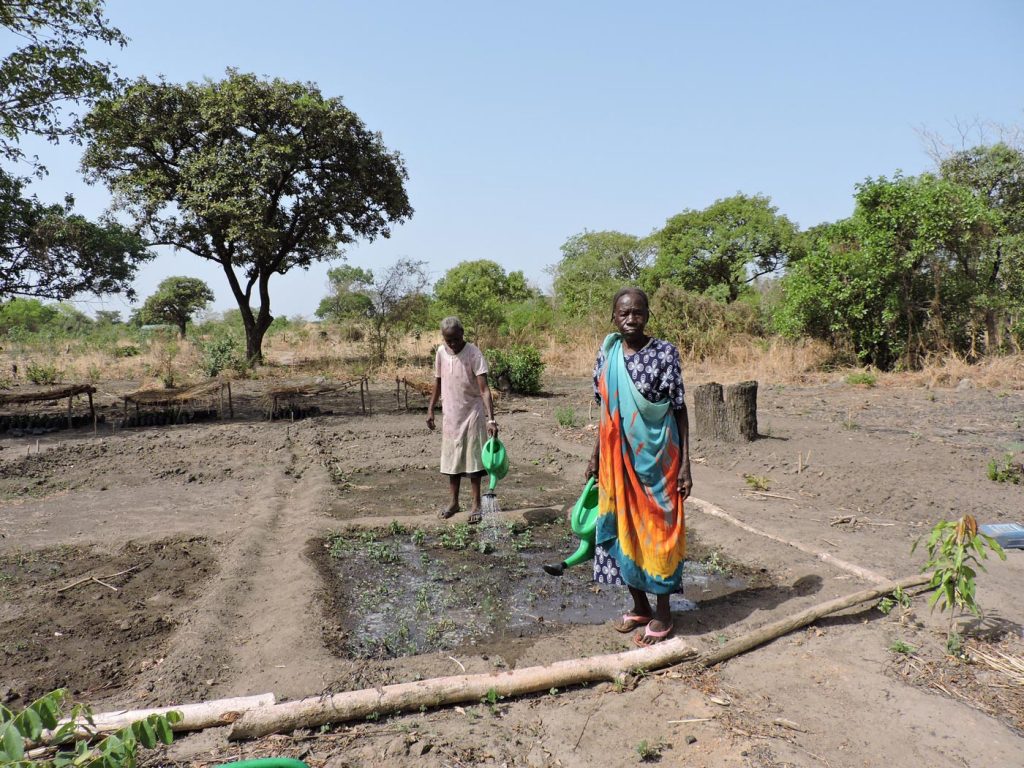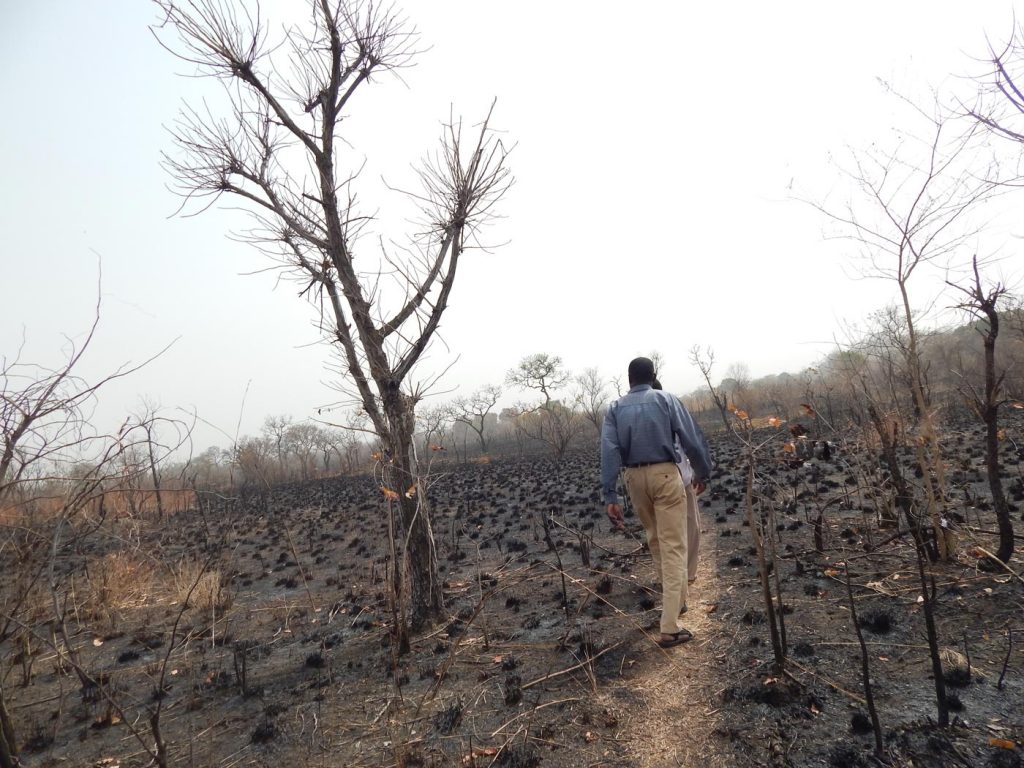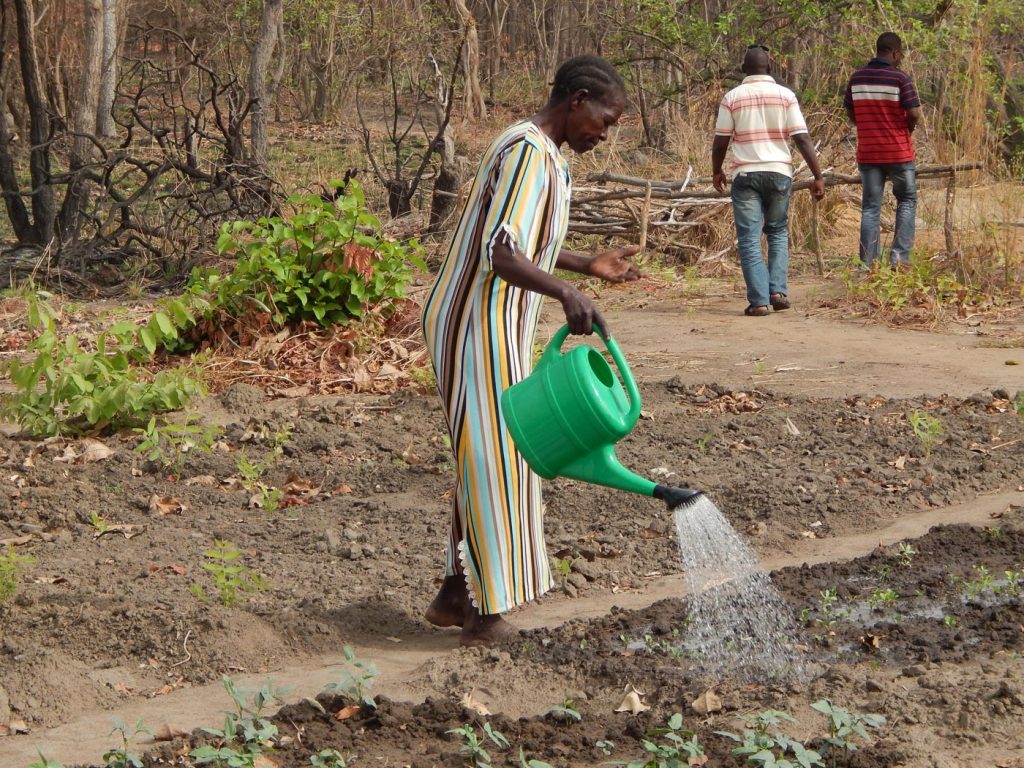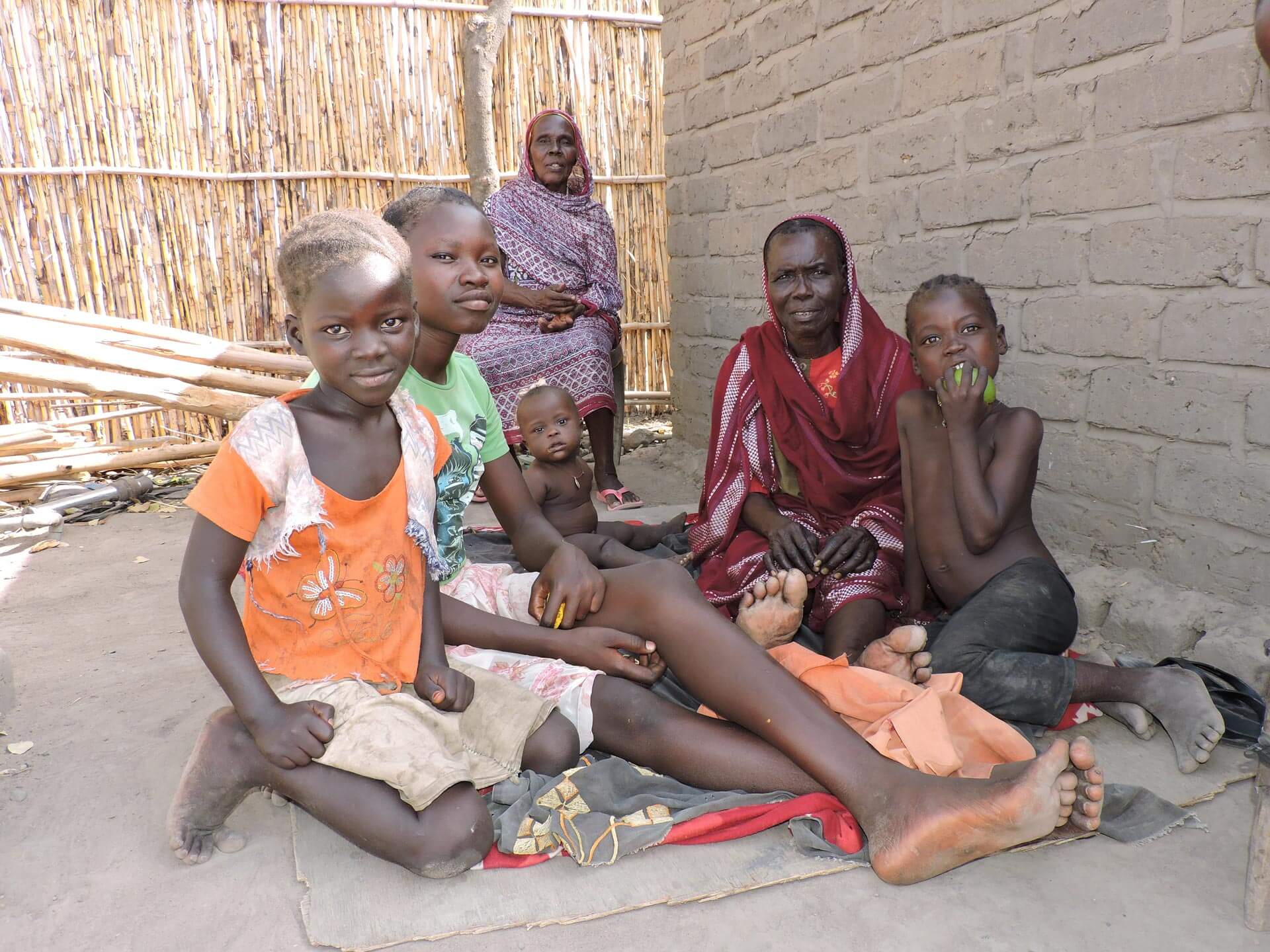South Sudan
In 2013, small-scale farmers around Wau were using inefficient farming methods that resulted in low yields and very little profit from their sales. We taught them how to process the fruits, vegetables and peanuts they grew. We also took care to protect the environment by building forest nurseries, planting fruit trees and controlling the burning of grasslands around Wau. We were able to dig 9 wells in community gardens and equip them with water pumps needed for irrigation. 540 farmers received agricultural skills training.
In 2015, a large proportion of the South Sudanese population was suffering from the effects of the ongoing civil war, which was severely slowing down overall development and the provision of basic necessities, including food. Food shortages were most pronounced especially during the dry season. In the Deim Zubeir area, we therefore worked with the local population to improve food security. We focused on training communities in agriculture by introducing new methods of ploughing the land, using new equipment and creating an agricultural teaching scheme. In 2015, our team provided distribution of farm implements and improved seeds to 150 farmers, as well as distribution of 20 quality ploughs. We trained 20 members of donkey breeding groups. After successfully completing the training, we donated the 20 donkeys that passed the veterinary inspection to local communities.
Due to the deteriorating security situation in the Deim Zubier area, which among other things has caused a mass exodus of people to safer areas, we have been forced to cease activities and move to the new area of Aweil, located in the northern Bahre el Ghazal region. Here, in collaboration with a local partner, we focused our efforts on addressing food insecurity by increasing farm production, increasing income from growing, processing and selling crops, as well as improving the hygiene and eating habits of the local population. The project directly affected 300 farm households, but indirectly affected a substantially large proportion of the population in the Aweil area.
In 2016, we helped increase farm production in South Sudan. We taught farmers how to care for the soil, diversify crops, store seeds or use low-cost irrigation techniques. A total of 625 household representatives, both women and men, from 25 different communities received such training in 2016. In the Aweil area in the northwestern part of the country, we have thus helped poor families to increase production from their farms, income from the sale of crops and food security.
Another 375 South Sudanese learned more about how to manage cattle herds or process milk and meat. In 62 sessions, we explained how the community savings mechanism works and 166 households received a large three-week training. During it, they learned how to use livestock for agricultural purposes, such as a cattle team to work the land. The ongoing civil war has left the local population unable to provide for their own basic needs, including food. People suffered from hunger, especially during the dry season, which sometimes lasted for more than six months. For several years, we have therefore contributed to mitigating the impact of the current crisis in the country by providing various support in cooperation with local partners. Our work in South Sudan has been supported by SlokAid funding. Our project had a direct impact on a total of up to 1,000 households, but indirectly affected a significant proportion of the population in the Aweil area.
South Sudan has been devastated by decades of political instability, armed conflict and prolonged drought, claiming the lives of 2 million people and forcing 4 million others to become refugees. There was a critical lack of resources, with only 40% of children having access to education. The situation was particularly bad for girls, only 26% of whom attended school. In 2007, People in Peril, in collaboration with eRko, set up a project to send Slovak teachers to Mapuordit, where they built an infrastructure for volunteers. In August 2007, two Slovak teachers started teaching science and English there.
